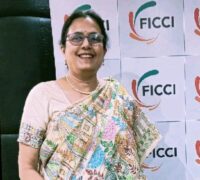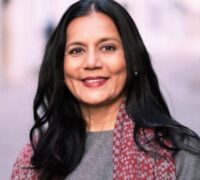
Making the metaverse a safe space for everyone
As organizations begin to incorporate the metaverse into their strategies, CEOs must ensure that the new technology supports equity, inclusion and diversity at every opportunity....
21 September 2023 in The Female Quotient
Why accessibility is essential if women are to attain financial security, and what it will take to develop a pathway to a brighter and more prosperous future for all. ...

In today’s changing economy, women are fast becoming a driving force. They shape spending and economic trends, but they also face challenges in securing their financial futures. For decades, the systematic challenges faced by women have hindered their economic participation. They often undervalue themselves, hesitate to demand equal pay, and lack access to financial education.
Women are at the heart of transforming global economy and they hold influence as the highest spending consumers for their households. A recent McKinsey & Company report, The Power of Parity, has projected that advancing women’s equality could add up to $12tn (about $37,000 per person in the US) to the world economy by 2025.
Yet only 30% of women worldwide are considered financially literate. This statistic highlights the uphill battle women face in securing their financial well-being. Research from the Global Financial Literacy Excellence Center (GFLEC) confirms this, showing that women consistently lag behind men in both financial knowledge and confidence.
Economic independence is the cornerstone of a brighter future for individuals with disabilities.- Meera Shenoy, Founder and CEO of Youth4Jobs
What are the barriers to women’s economic empowerment, and how can they be overcome?
Smita Suchde Gruetter, Founder of HEMLATA, provides valuable insights into the obstacles that hinder women’s economic progress in India and the innovative strategies employed to overcome the barriers.
Meera Shenoy, Founder and CEO of Youth4Jobs, works to empower rural women, training them in tailoring and hand embroidery and providing them with employment. She notes, “Economic independence is the cornerstone of a brighter future for individuals.”

In the quest for women’s empowerment, education stands as a powerful catalyst. Niti Jain, Co-Founder of Qween Network LLP, passionately advocates for the transformative role of education in empowering women to take control of their financial futures. She illustrates this point with a poignant anecdote about a friend who was thrust into the challenging role of single mother navigating a complex financial world alone. Women are often excluded from financial discussions in families, she says, and must rely on male relatives to handle financial matters.
Jain suggests including financial education in schools, emphasizing that girls should be taught about saving, investments, and financial planning from an early age. Such a step, she believes, would be instrumental in equipping the next generation of women with the knowledge and skills needed to navigate the intricacies of personal finance confidently.
Jain also stresses the importance of corporate social responsibility (CSR) activities, encouraging companies to invest in financial literacy and education programs tailored for women. Incorporating insights from the United Nations Educational, Scientific and Cultural Organization (UNESCO), she highlights the importance of life skills development for women’s financial empowerment.
Jain’s perspective underscores the importance of early financial education, corporate engagement in financial literacy programs, and the integration of life skills into women’s education as essential steps toward bridging the financial gender gap. Her vision aligns with the broader goal of empowering women to seize control of their financial destinies, ensuring a future where financial equality becomes a reality for all.
Simi Mehta, CEO and Editorial Director of the Impact and Policy Research Institute (IMPRI), is known for her expertise in areas related to sustainable development, governance, and policy research. IMPRI conducts research, hosts seminars, and publishes reports on a wide range of topics, with a particular emphasis on addressing critical policy challenges in India and beyond.
Mehta’s leadership at IMPRI underscores the organization’s commitment to advancing evidence-based policy solutions and contributing to informed public discourse on issues of significance. Her work and contributions in policy research and sustainable development are recognized and respected in academic and policy circles.

She suggests there is untapped potential in tapping into the accumulated wisdom of previous generations to empower women economically. The collective wisdom of our elders becomes a beacon of hope, illuminating the path towards financial equality.
In the quest for financial inclusion, Mansi Kabra, Associate Director at Good Business Lab, is actively involved in prompting initiatives fostering sustainable and socially responsible business practices. Good Business Lab is an organization that focuses on conducting research and implementing projects that improve labor and employment conditions in India, particularly for low-income and vulnerable workers.
Kabra points out that many rural women still lack access to and trust in technology. Statistics from the World Economic Forum reveal that while mobile phone ownership in households has surged, less than half of rural women personally use phones. Kabra’s insights underscore the glaring technology adoption gap and the urgent imperative of fostering trust in technology among marginalized women. In a world increasingly driven by digital solutions, addressing this disparity becomes essential to empower all women economically.
Gloria Jonathan of Bindi International echoes the importance of trust and accessibility. She stresses, “Expanding financial services and ensuring they reach marginalized women in rural areas is a crucial step.”
Educating a woman influences her family, community, and world at large, making everyone in it more inclusive and financially secure in the future. The ripple effect of women empowerment extends far beyond individuals; they enrich the entire world.
This article is based on a session from The Female Quotient’s (FQ) Equality Lounge at the G20 Summit in New Delhi. IMD is an academic partner of The Female Quotient, which joins forces with companies and leaders to curate experiences, thought leadership, and solutions designed to achieve gender equality in the workplace and beyond.

FICCI Representative, Americas

Founder, HEMLATA

Co-Founder, Qween Network LLP

Founder and CEO, Youth4Jobs

CEO and Editorial Director, IMPRI Impact and Policy Research Institute and Academic Director, Oxford Public School

Associate Director (Marketing and Transformation), Good Business Lab

Head, MEL, Bindi International

3 November 2023 • by Alyson Meister in Diversity, Equity, and Inclusion
As organizations begin to incorporate the metaverse into their strategies, CEOs must ensure that the new technology supports equity, inclusion and diversity at every opportunity....

27 October 2023 • by Ginka Toegel in Diversity, Equity, and Inclusion
It’s time to debunk outdated myths around women lacking confidence and not asking for pay rises and focus on the real problem: societal misperceptions. ...

9 October 2023 • by Natalia Olynec, Lars Häggström in Diversity, Equity, and Inclusion
With a growing number of employees holding their organizations to account over sustainability commitments, the onus is on HR departments to explain a firm’s purpose and impact if they are to attract...

9 October 2023 • by Martina Fuchs in Diversity, Equity, and Inclusion
Executives must do more to change the balance of power in the workplace, says BLM co-founder...
Explore first person business intelligence from top minds curated for a global executive audience